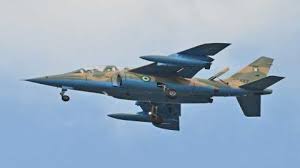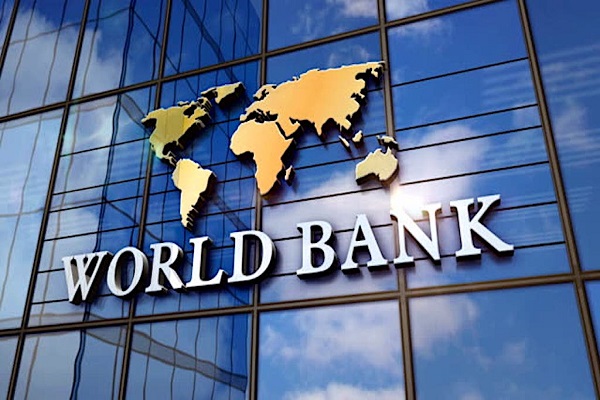By Olakunle Michael Folami
Akungba Akoko (Ondo), Sept. 4, 2023 – British pronounced Nigeria as an independent country on October 1st, 1960. The country was divided into three regions of the North, East and West. In 1963, Nigeria became a republic, excised from the control of the Queen of England. Military boys ceased the rein of government from the civilian government in January, 1966.
There was a counter coup in June 1966, which led to the creation of an additional region, the Mid-Western region. In 1976, the three regions were developed into twelve states by the military government of General Yakubu Gowon. It was General Murtala Mohammed that further divided the country into nineteen States in 1976. In 1987, another States creation exercise took place, General Ibrahim Badamosi Babangida increased the number of Nigerian states to twenty-one.
In 1983, General Babangida, a Hausa/Fulani man from the North, annulled the general election won by Chief Moshood Kashimawo Abiola, a Yoruba man from the South-West. The annulment created ethnic and political tension.
The annulment brought interim government of Chief Ernest Shonekan to power. Chief Shonekan, a Yoruba man from the South-West was removed from power through a palace coup led by General Sani Abacha, another Hausa/Fulani man from the North who ruled with the iron fist.
It was General Sani Abacha that further divided the country into thirty-six States and categorised them into six geo-political regions, namely: South-West; South-East; South-South; North-East; North-West and North-Central. 1999 marks the dawn of democracy after military occupied power for thirty years out of thirty-nine years of the country independence.
The election produced Chief Olusegun Obasanjo, a Yoruba man from the South-West of the country. He was replaced through election won by Dr Umaru Musa Yar’Ardua, a Northerner who died on power in 2010. Being the Vice-President, Dr Ebele Goodluck Jonathan was constitutionally promoted to replace late President Umaru Musa Yar’Ardua.
The ascension of President Jonathan to power in 2010 paved way for his success in 2011 presidential election. In 2015, President Johnathan was removed from office by General Muhammadu Buhari, a Northerner, on the promises of fighting corruption, tackling terrorism and revamping the economy.
The processes of removing President Johnathan were coloured with ethnic hatred, regional chauvinism, regional bigotry and ‘‘born to rule syndrome’’ of the Northerners.
Ethnicity reflects in everything among Nigerians.
The country is divided between majorly Muslims North and Christians dominated South. Ethnicity determines political appointments, job allocations, contract awards, economic empowerment, military service, internal security arrangements, education, and political participation. Ethnicity often led to crisis of a great magnitude that always shook the foundation of the country. Majority of people do not consider Nigeria as a nation but a country because of ethnicity.
Nigeria had attempted to resolve crises emanated from ethnicity. Various transitional justice mechanisms have been adopted such as truth commission, memorization, acknowledgement and others.
It is important to note that these mechanisms have not brought enduring peace because they were piecemeal arrangements that failed to address ethnic questions such as equity, equality, justice and nationalism.
The question is whether wholesale transitional justice mechanisms should be employed to resolve myriad of ethnic crises in the country.
What are the other forms of transitional justice mechanism to be adopted? While acknowledging the relative peace in the country, it can be argued that adopted transitional justice methods have not led to effective and enduring peace in Nigeria.
There are over two hundred and fifty ethnic tribes in Nigeria. The three major tribes are Yoruba, Igbo and Hausa/Fulani. The three major ethnic groups dominated the socio-political landscape of the country.
The Hausa/Fulani which occupied the north of Nigeria had produced nine out of fourteen Head of States in Nigeria. The Southern Nigeria dominated the economic terrain of the country. The three major ethnic groups had a fair share of the new States.
It should be noted that until 1996 when General Sani Abacha created another six states in addition to the existing thirty States, no single State was created for the Ijaw, the fourth largest ethnic in the country. The new six states included Bayelsa State, which is the only state occupied mainly by the Ijaws.
Also, exclusion of the Igbo, a major ethnic group in the country’s political arrangement at the federal level often created tension in the country. Protracted political crises, ethnicity, corruption, terrorism, kidnapping, banditry and religious divisions make peace unavoidable thus create further divisions in Nigeria.
The question is what can be done to bring peace to the country? It should be kept in mind that this write-up aims at examining transitional justice mechanisms as way of addressing questions of ethnic crises in Nigeria.
The Niger Delta is oil producing region of Nigeria. It produces one fifth of the world’s oil and gas, making Nigeria the largest oil producer in Africa and the sixty largest oil producing country in the world.
Nigeria cannot adequately account for the proceeds of the crude oil production because of corruption, mismanagement and maladministration. A few aristocrats, military, police, cabal and political office holders corner oil proceeds.
Majority of Nigerians live in abject poverty. The oil wealth does not translate to development and growth.
The country lives with the narratives of insecurity, inadequate infrastructure, wanton ecological damage, oil theft, corruption, embezzlement, election crises and misrule.
For example, the Niger Delta conflict is as a result of environmental degradation by the multinational oil companies, human rights abuses and apathy by the Federal Government, multinational oil and gas companies when it comes to the development of the region.
The most prominent among the ethnic groups in the Niger Delta are Ijaw, Urhrobo, Itsekiri, Isoko, and Ilaje. The inter-tribal conflicts have redefined internal interactions, solidarity, integration and relations, and have received international attention. Ijaw/Ilaje conflict – Arogbo-Ijaw and Ugbo-Ilaje inter-ethnic conflict has a long history.
It started as a gradual process over decades, which later developed into a full-blown conflict with the attendant destruction of lives and property. While creating more States, the administration of General Sani Abacha created Bayelsa State in 1996.
Warri South-West Local Government Area (LGA) with headquarters in Ogbe-Ijoh was also created around the same period. The Ijaw in Ondo State also benefited, a Local Government was created for them with headquarters at Igbekebo.
The creation of LGAs in Ondo and Delta State for the Ijaw by General Abacha led to violent conflict between the Ilaje and the Ijaw in Ondo State on one hand and the Ilaje and the Itsekiri in Delta State on the other hand. Controversies over land ownership led to crisis between the Ijaw and the Ilaje.
The Ilaje argued that the Ijaw are tenant therefore, they should not enjoy a political self-rule. Creation, location and relocation of LGA headquarters led to protracted conflict between the Ijaw and the Ilaje in Ondo State, the Ijaw and the Itsekiri in Delta State.
Warri, “the oil city’’ as popularly called hosted the three ethnic rivalry groups: the Ijaw; the Itsekiri; and the Ilaje. Ethnic rivalry among the three groups existed before the 1960s Nigeria independence. The Itsekiri hosted the largest portion of oil in the region.
The political struggle in the region has been centered on Warri because of the believe that the Itsekiri is favoured by the Yoruba in political and socio-economic arrangements.
The conflict between the Ijaw and the Urhobo was a product of mistrust, apprehension and resource control. In a nutshell, the Niger Delta conflict is about land ownership, oil location control, access to oil wealth, divide and rule.
As a result of the Niger Delta conflict, Nigeria could not meet the Organization of Petroleum Exporting Countries’ (OPEC) production quota. Nigeria, with its abundant oil resources has the capacity to produce about 3.2 million barrels of oil per day.
The country’s production level dropped below 2 million barrels per day, OPEC’s production target of 2.1 million barrels per day (mbpd) owing to frequent shut-ins due to renewed attacks on oil facilities in the Niger Delta region. It was reported that prior to the escalation of violent attacks on oil installations, Nigeria produced between 1.4 and 1.8 million barrels of crude oil per day.
Between October, 2013 and January, 2014, Nigeria’s crude production appreciated following a directive by the Federal Government of Nigeria that oil companies operating in the country should increase output from the deep offshore fields.
As a result of the increase in crude production, Nigeria was able to meet its daily production quota of 2.1 million barrels per day allocated to her by OPEC.
Nigeria is predominantly agrarian society. After oil exploration and exploitation, farming is the main stay of Nigerian economy. There are different forms of farming across the country such as crop farming, cash farming, poultry farming and animal husbandry.
There are a group of people whose primary job is herding. They are nomad. They occupied the Northern part of the country. They are called the Fulani. The Fulani herders often migrate from one place to the other in search of water and food for the animals. In the cause of movement of animals, they destroyed farms and also engaged in conflict with farmers.
Farmers/herders conflict were prominent in the North-Central of Nigeria particularly in the Benue, Taraba, Adamawa and Plateau State. Farmers/herders conflict has been extended to the South-East and the South-West of the country. It is important to know that banditry, kidnapping, Boko Haram and other terrorist group have disguised as Fulani herders to terrorize people of Southern Nigeria.
The activities of Fulani herders have divided the country further along the line of ethnicity. Destruction of farmland by the Fulani herders. The inability of government to curb the Fulani herders’ activities has led to agitations among different ethnic groups in the country.
There is a continuous call for the resurrection of Biafra Movement in the South-East, emergence of Yoruba Nation in the South-West and other self-determination groups across the country.
Civil war took place in Nigeria between 1967 and 1970. Millions of people were killed. January, 1966 coup and June 1966 counter-coup led to the war. The crises between military echelons from the East and the North extractions led to the civil war.
Problems in the military extended to the civilians. Many people from the Igbo ethnic groups were massacred in the North. The exodus of the Igbo from the North and rivalry among the military echelons led to the declaration of the Republic of Biafra in 1967.
The declaration led to thirty months of civil war between the Nigerian Army and Biafra war lords led by Colonel Odumegwu Ojukwu. It was recorded that five million Igbo people were killed during the civil war.
Agitations for separate country for the people of Igbo ethnic extraction still rages on in Nigeria. The civil war created mistrust between the Northerners and the Easterners. Since the end of the civil war, the Igbo has not been allowed to produce the nation president.
The civil war also created mistrust between the Yoruba and the Igbo. The Igbo believed that their secession from Nigeria will be supported by the Yoruba. It was noted that the Yoruba backed out when the Igbo warlords were advancing toward the Lagos, the former Federal Capital of Nigeria.
The extension of the civil war affected some Yoruba towns and cities such as Ore in Odigbo Local Government Area of Ondo State. The modern-day politics has not recorded cordiality between the Igbo and the Yoruba.
The Hausa and the Yoruba have refused to recognize the Igbo in the country’s political arrangement. This has led to a cry of marginalization from the Igbo and renew of a call for a separate Biafra country by the Igbo.
Lack of credible election occasioned by the manipulation of election results had led to a number of crises in Nigeria. Litany of electoral frauds and crises dotted the political landscape since voting commenced in the country in 1923.
There have been electoral crises due to rigging, manipulation, ethnic chauvinism, religion bigotry and domination. The following electoral crises have created divisions and almost end the life of the country such as the 1964 Federal Election, 1965 Western Nigeria Election, 1979 General Election, 1993 General Election and 2015 General Election.
The annulment of 1993 general election won by Chief Moshood Kasimawo Olawale Abiola, a Yoruba from the South-West by the Northerners led by General Ibrahim Babangida created tension between the North and the West.
Lack of trust and unity among the three different ethnic dominated regions led to rotation presidency, which has produced inept, corruption, kidnapping, banditry, and atmosphere of agitations and separation.
Emergence of transitional justice as a mechanism for addressing human rights abuses in post-conflict society or authoritarian rule could be traced to the mid-1980s.
Transitional justice mechanisms include accountability, truth-telling, vetting, reparations for victims and institutional reform. Transitional Justice consists both judicial and non-judicial approaches and mechanisms such prosecution, truth commission and findings, awarding of reparation, protecting and restoring of human rights, security sector reform, social and economic resuscitation.
There is no lineal relationship in transitional justice measures; they are only mutually inclusive, as it is not mandatory or possible for any country in transition to adopt all forms of transitional justice.
The adoption of an approach depends largely on the peculiar characteristics of a given country. The most important thing is that transitional justice should be considered in post-conflict societies to recognise the interests and provide remedy to the vulnerable whose rights have been violated.
To do this, transitional societies must recognise the interdependent links between measures like prosecution, truth-telling, institutional reforms and reparations as important and useful to the recognition of victims’ rights.
Transitional justice mechanisms such as accountability and security sector reform need to be given adequate consideration in the Nigeria. The way conflicts affected individuals and their expectations in the peacebuilding processes are different.
For many reintegration and reparations would satisfy them. Many want accountability, memorialisation, truth and investigation. The above suggest the expected role that transitional justice mechanisms could play in the resolution of conflict such as ensuring accountability and ending impunity, fostering reconciliation and socio-political reconstruction, establishing an historical record and countering denial.
For example, transitional justice mechanisms have helped to provide justice and satisfaction to victims and relatives of human rights abuses in countries such as Argentina, Chile, Paraguay, Bosnia and others.
Looking generally at the conflict resolution methods adopted, it is clear that the methods have limitations as a peacebuilding process in Nigeria. While acknowledging the relative peace and stability recorded, the peacebuilding methods have not led to effective and enduring peace in Nigeria; additional peacebuilding mechanisms should be considered.
One such peacebuilding mechanism is ‘‘wholesome’’ transitional justice. To ensure peaceful coexistence is strengthened, it has to be combined with transitional justice in holism.
Therefore, this article reveals that peacebuilding could be complemented by justice, peace, security, institutional reforms, vetting, development and guarantees of non-repetition of conflicts. (GBN)
Associate Professor Olakunle Michael Folami is a proficient practitioner of transitional justice and imparts knowledge in the field of Criminology and Security Studies at the Adekunle Ajasin University, Akungba Akoko, Ondo State, Nigeria.





